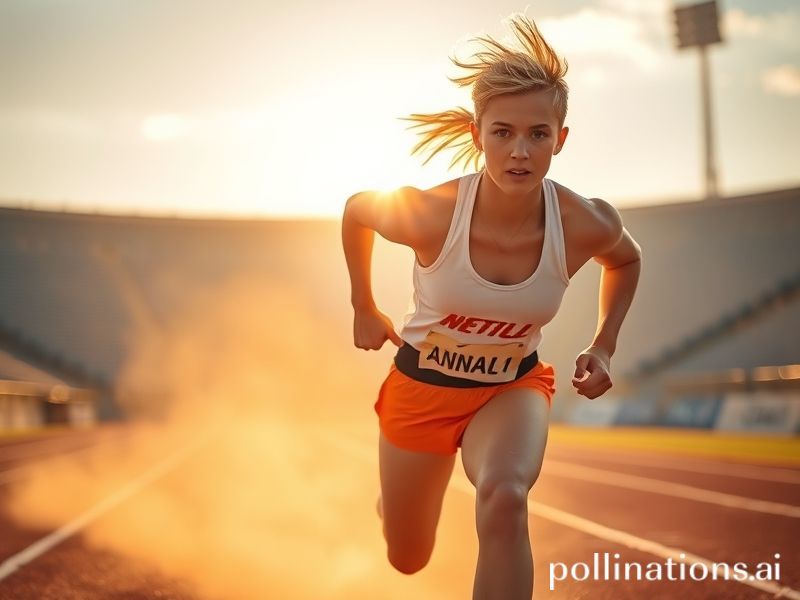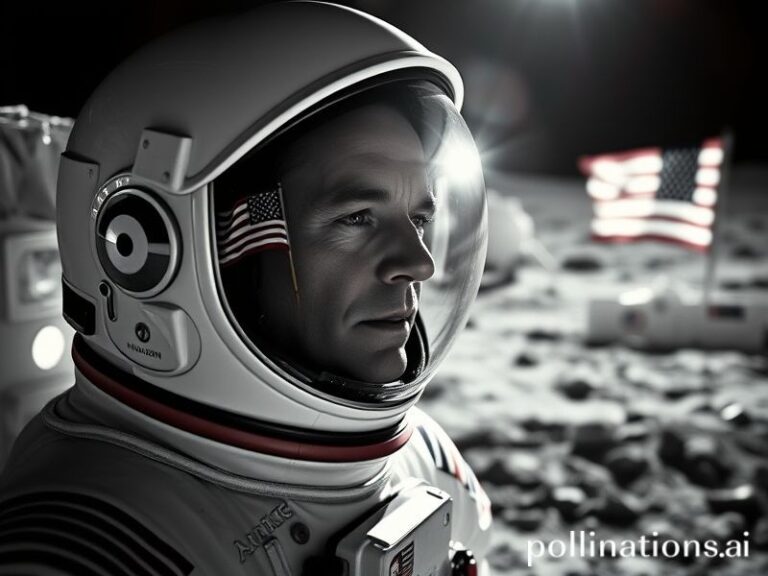The Anna Hall Paradox: When Athletic Excellence Becomes a Global Controversy
**The Global Ballet of Anna Hall: How One Heptathlete Became an Unlikely Geopolitical Chess Piece**
In the grand theater of international sport, where nations perform their carefully choreographed dance of peaceful competition while simultaneously stockpiling weapons behind the curtain, Anna Hall has emerged as an unexpected protagonist. The 22-year-old American heptathlete—whose greatest crime appears to be possessing both extraordinary athletic ability and the audacity to be photographed looking vaguely human while exhausted—has somehow found herself at the intersection of doping allegations, national pride, and the eternal human fascination with watching exceptional people fall from grace.
The international sporting community, that noble institution that brought us such hits as “East German Swimmers: The Deep-Voiced Years” and “Russian Olympic Committee: Now With 50% Fewer Flags,” has been convulsing over Hall’s recent performances. Her crime? Running, jumping, and throwing things better than most people while having the misfortune of doing so in an era when athletic excellence is automatically suspicious.
From the glass towers of Lausanne to the crumbling stadiums of former Olympic hosts, Hall’s situation illuminates the delicious paradox of modern sport: we want our athletes to be superhuman, but not *too* superhuman. Like Icarus with better marketing, they’re encouraged to fly—but only within carefully regulated parameters, monitored by officials who may or may not be accepting bribes in cryptocurrency.
The global implications are, naturally, earth-shattering. While actual wars rage and climate change transforms our planet into a giant sauna, the world’s attention turns to whether a young woman from Colorado might have ingested something that made her jump farther than nature intended. International federations have sprung into action with the speed of sloths on sedatives, launching investigations that will presumably conclude sometime around the heat death of the universe.
In developing nations, where actual problems like food security and basic healthcare remain stubbornly persistent, sports officials have taken note. “Ah yes, the American heptathlete situation,” murmurs a bureaucrat in Nairobi, postponending a meeting about clean water infrastructure to discuss the pressing matter of whether Hall’s performances were artificially enhanced. The butterfly effect in action: a urine sample in Doha potentially impacting funding decisions in Dakar.
The Chinese sports system, ever efficient, has reportedly begun developing heptathletes specifically designed to never raise suspicion—athletes who will perform adequately but not exceptionally, ensuring decades of mediocrity and clean test results. The Europeans, never ones to miss a good bureaucratic opportunity, have proposed forming a committee to study the formation of committees to address the situation.
Meanwhile, in the shadowy corners of the internet, conspiracy theorists have connected Hall’s performances to everything from 5G towers to the price of quinoa in Bolivia. The algorithm gods have smiled upon the controversy, ensuring that actual journalism about the situation appears somewhere between videos of cats playing pianos and advertisements for wellness teas that definitely don’t contain banned substances.
As we await the inevitable conclusion—likely a wrist-slap, a temporary suspension, and a tearful interview about learning from mistakes while maintaining innocence—the world continues its orbit around the sun. Nations will rise and fall, civilizations will crumble and rebuild, but somewhere, someone will still be arguing about whether Anna Hall’s achievements were too good to be true.
In the end, perhaps that’s the real victory: in a world teetering on the brink of multiple catastrophes, we’ve found something we can all argue about that doesn’t involve nuclear codes or the imminent collapse of democracy. Thank you, Anna Hall, for providing the distraction we didn’t know we needed.







